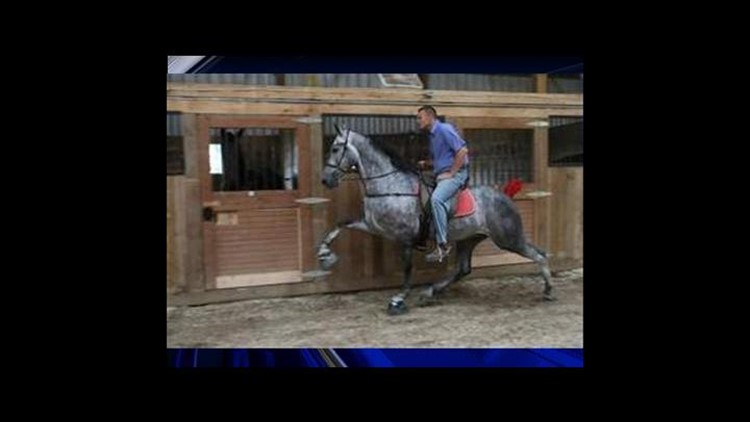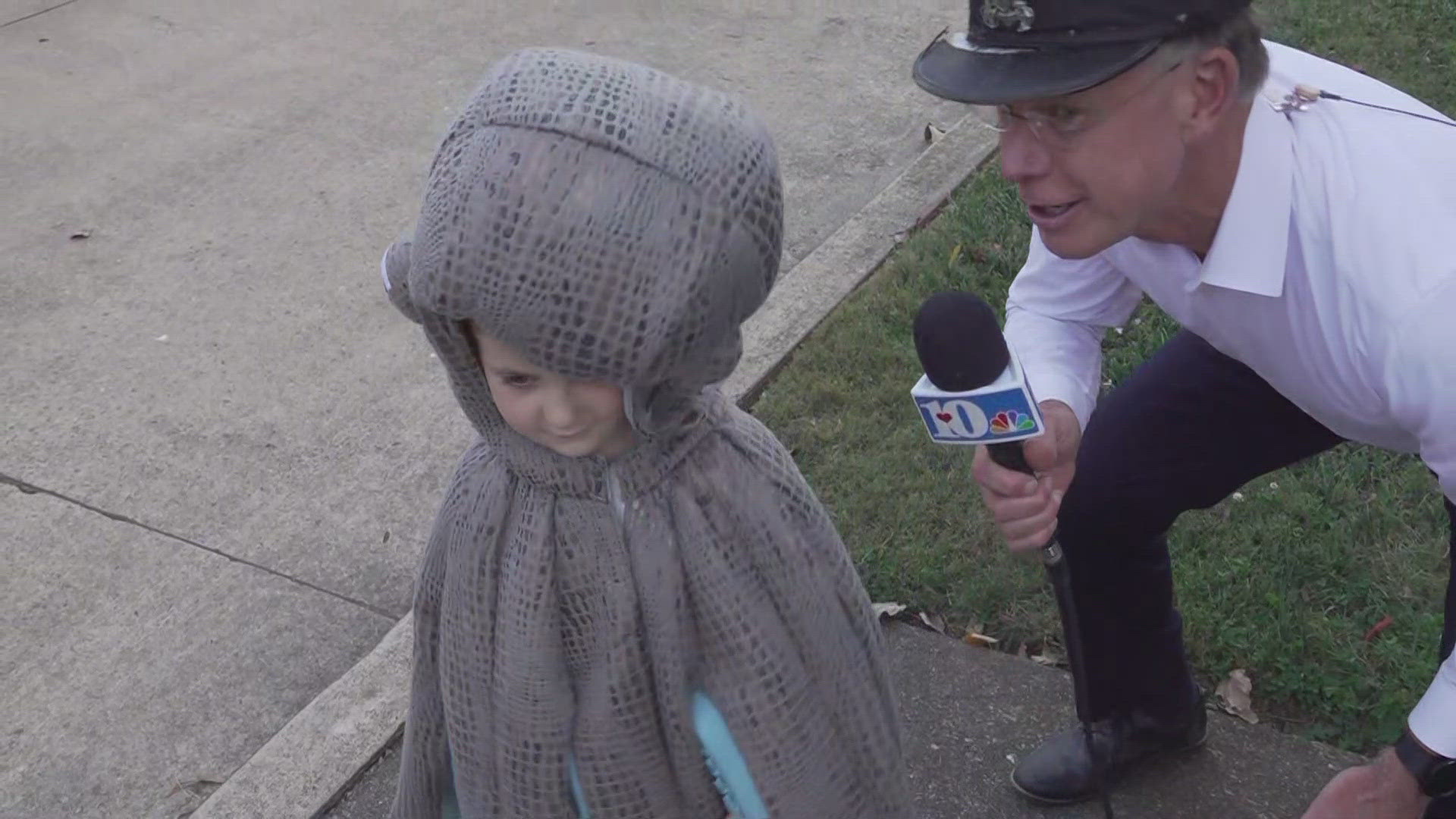Economically, the horse industry has struggled in recent years, in part because of the negative image created in 2006 when only three of 11 entries in the World Grand Championship Stake class passed inspection.P dir=ltr>Many owners became disenchanted when they paid training bills, traveled long distances to shows and then saw their horses fail at inspection.P dir=ltr>This year's Celebration has more than 3,400 entries and more than 1,700 horses, a 19 percent drop from 2008.P dir=ltr>"This year in particular, our business has been economically driven," said Walking Horse Trainers Association President Link Webb.P dir=ltr>"Horses have not sold as well. I don't know how much has to do with the economy and how much has to do with the situation our industry is in."P dir=ltr>About the only point of agreement for some is that the horse industry has survived because of the quality of the animal, and that it can flourish again.P dir=ltr>"I'm not completely sure how the industry has gotten in the shape that it is in now," said Webb, who rode Santana's El Nino to the 2008 World Grand Championship."We have such a great animal. It's unbelievable how great the horses really are, and to think of the things they've been through over the years, and they're still going forth."/>
Tennessee Walking Horse abuse triples in 4 months
Scrutiny may help to clean up sport.


By Larry Taft, THE TENNESSEAN P dir=ltr>With the opening of their largest and most prestigious event just days away, Tennessee Walking Horse owners, trainers and show officials are looking at numbers that, under normal circumstances, would be frightening.P dir=ltr>Over the last four months, violations of industry and federal regulations on the humane treatment of horses more than tripled compared with the same period in 2008.P dir=ltr>That may be the best news the industry has had in decades. In fact, it may steer the industry away from a 40-year path of self-destruction and enrich the show horse segment of the unique breed native to Middle Tennessee.P dir=ltr>A new federally sanctioned agency, directed by the Tennessee Walking Horse National Celebration, began examining horses at shows on April 1.P dir=ltr>With more than 30 stewards coordinated by two veterinarians, the organization is strictly adhering to federal laws banning soring, or deliberately injuring a horse's front feet to exaggerate the sought-after high-stepping gait.P dir=ltr>Increased scrutiny could result in trainers and owners, frequently wealthy hobby horsemen, being banned from showing horses if they sore them.P dir=ltr>It should also preserve the one-night shows that are a part of the tradition in small Middle Tennessee towns, where they raise money for local charities.P dir=ltr>Inside the industry, the mindset has changed. Thorough and fair examinations are considered a sign of progress. The increase in cited violations, from 118 issued April-July 2008 to 386 in April-July 2009, is no longer seen as a step backward.P dir=ltr>"We are doing a better job of inspecting now," said Shelbyville veterinarian Dr. James Baum, an owner and exhibitor who is not on the inspection team.P dir=ltr>"We've eliminated some of the inconsistent inspections so that every horse and every trainer and every owner is looked upon as the same.P dir=ltr>"I think we have better people doing the inspection process, and we have a better-run inspection process. And we have people at the top who are directing everyone else to do it right.P dir=ltr>"They will do it right, or they won't be around."B>Violations punished/B>At a Woodbury horse show on July 4, a Tennessee Walking Horse cared for by North Alabama trainer Chris Zahnd was led to an inspection station for a routine examination required of all entries.P dir=ltr>The horse never made it to the show ring. Industry stewards determined the horse had been abused during training.P dir=ltr>They also found a device in the horse's mouth that was designed to distract him so he would not respond when his sensitive front feet were checked for soreness.P dir=ltr>Both offenses violate industry regulations and federal law. In less than a week Zahnd, Dallas Procter and Wayne Dotson - all deemed responsible for the care and control of the horse - received the first lifetime suspensions issued by an industry regulatory agency.P dir=ltr>Just days earlier, Shelbyville trainer Hal Newman and two others, Josh Wall and Frank Alvarez, received one-year suspensions for taking one horse to the pre-show inspection and swapping it for another for the post-show exam.P dir=ltr>The horse-swapping citation was an industry first, though the illegal practice had been suspected for years.P dir=ltr>Clearly, Celebration CEO Doyle Meadows said, compliance has become the industry standard. In fact, he removed nine stewards he believed were lax in performing examinations.P dir=ltr>"We are not pleased with the number of violations. We don't want any horses treated inhumanely, nor do we want any violations," said Meadows, a retired University of Tennessee equine science professor.P dir=ltr>Meadows said he thinks there are fewer abuses than ever. It's just that better inspections are uncovering more offenses.P dir=ltr>"You have to look at it as a double-edged sword. We don't want any horse that is not compliant in our show rings. We want inspections that are fair, consistent and transparent.P dir=ltr>"We want horses that are healthy and happy, walking and shaking their head, horses that win because of genetics and superior training."B>Making a fresh start/B>Almost 40 years ago, federal laws were passed to eliminate soring, a training practice of applying chemical irritants to a horse's front feet. Pain from soring causes horses to lift their feet higher and faster, creating an exaggerated gait that aids in turning an ordinary Walking Horse into a winner.P dir=ltr>The law provides for the horse industry to have a regulatory agency to ensure compliance. For 30 years, a commission comprising owners and trainers oversaw compliance in the Tennessee Walking Horse industry.P dir=ltr>Until it folded in March, the group and the U.S. Department of Agriculture were at odds over interpretation and enforcement.P dir=ltr>When the commission disbanded, the Celebration took over regulation. The change followed a recommendation in a 2008 American Association of Equine Practitioners white paper. That veterinary group said oversight should be handled by an independent agency, with veterinarians at the helm.P dir=ltr>"It wasn't proper to have people with that intense of an interest being involved in the judging and the inspection processes, which are both very subjective," Baum said of the owner/trainer commission.P dir=ltr>"Even if the government wasn't involved, something had to be done."P dir=ltr>On Wednesday, the 71st annual Celebration opens. It will end its 11-day run on Sept. 5, concluding a 171-class schedule with the crowning of the World Grand Champion, the industry's crown jewel.P dir=ltr>Celebration officials met recently with USDA officials in Washington, asking that the government be open-minded and understand that the industry has the resolve to change directions.P dir=ltr>USDA veterinary inspectors will be at the Celebration. In the past, the agency has been skeptical. Dr. Rachel Cesar, USDA horse protection national coordinator, said it is too soon to know if change has occurred. "They just started in April, and at this time I can't speculate on how they are doing," she said. "We'll have a report at the end of the year.P dir=ltr>"We have been working closely with them, and we want to make sure they are on task, and that there are more objective inspections.P dir=ltr>"We want to eliminate soring. It is not as blatant as it was 40 years ago, but it still exists, and we are working on ways to detect it even when it is more subtle."B>Area economy benefits/B>For Bedford County and the horse industry, the Celebration is an occasion. Evening show classes are scheduled each day, and morning classes are held most days. The show will use the 30,000-seat outdoor stadium and 4,500-seat indoor arena.P dir=ltr>More than 150,000 tickets have been sold, and it will be worth about $50 million to the economy of the area.P dir=ltr>The Celebration's festive atmosphere is replete with 62 barns, most fancily decorated; carefully groomed horses; meticulously dressed riders; commercial exhibits; a trade fair; and 14 food booths manned by local civic clubs.P dir=ltr>On show days at nearby farms, hundreds of mature horses and yearlings will be sold at auctions that see hundreds of thousands of dollars changing hands.P dir=ltr>But the focal point this year, perhaps more than ever, will be on the improved soundness of the horses vying for blue ribbons, ornate trophies and a half-million dollars in prize money.P dir=ltr>More stringent inspections have owners optimistic. Turning away unsound horses has restored interest for those on a quest for fair competition.P dir=ltr>"All I want as an owner is to have a hobby where my wife can ride, show and have fun," said Frank Eichler, a Nashville attorney who lives in Shelbyville and relocated from Colorado nine years ago because of the horse industry.P dir=ltr>"I believe we can see that happen this year."B>Participation slips/B>

